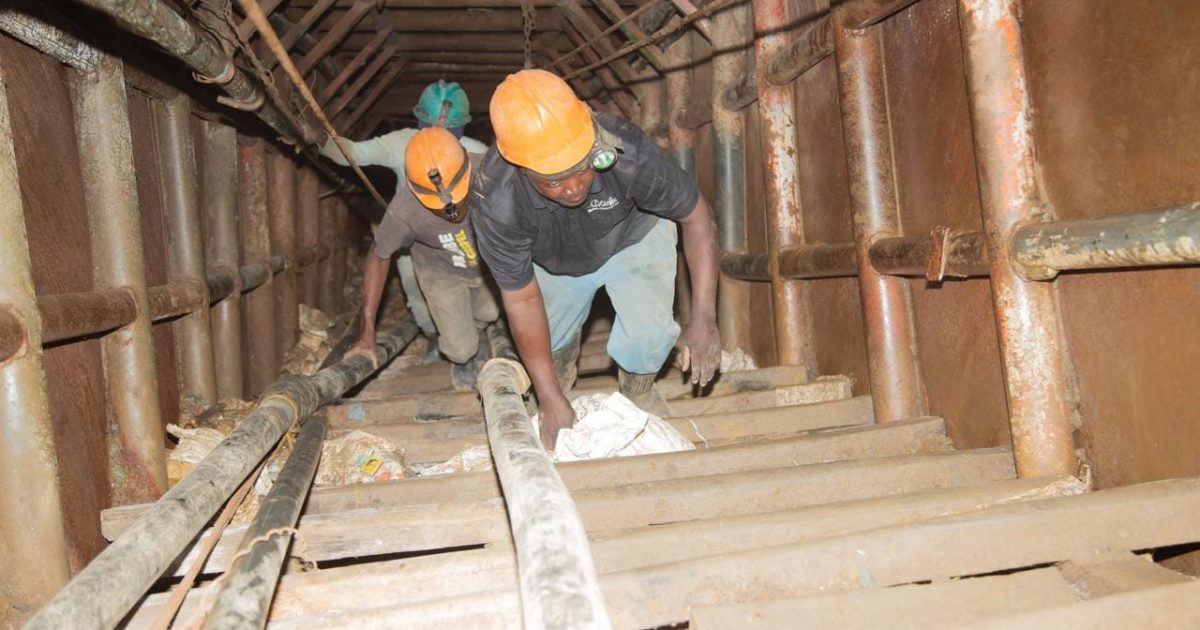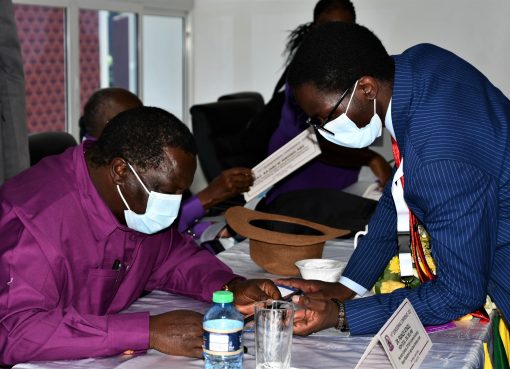At 70, Mama Eunice Mbuwa’s speech is slow and measured. Each word carries the self-assured conviction of ancient sages. With over two-decade experience in a long and relentless quest for precious stones like tsavorites in the sprawling wind-swept mining fields of Kasighau ranch in far-flung regions of Voi sub-county, the septuagenarian, one of the few veteran women miners in the region, knows a few secrets the earth holds.
Her stay in the sector has given her a unique perspective on the nature of devastating poverty and perils besetting artisanal miners. Since her induction into the craft of gemstone hunting in the 90s, she has seen fortune and disaster visit miners. She has witnessed the cruel hand of fate deal brutal blows on young miners’ dreams by turning their soaring hopes into deep despair.
Miners, bursting with optimism of success, have many a time arrived only to leave many years later, broken old men staggering under unbearable weight of disappointment, shattered lifetime dreams and aborted hopes.
“This sector is never for the faint-hearted. It tests the limits of your endurance. You need unwavering faith that in the end, you will find what we seek. Some of us have been mining for over twenty years and still hope to get our big break lurking a few meters away,” she explains with a wry smile.
Mama Mbuwa’s conviction that the fortune miners seek lurk within reach is the quintessential driving force that attracts and keeps thousands toiling in the mines amid crippling levels of poverty. Occasionally, when fate relents and grants a lucky few their long hoped-for breakthrough, such miners are transformed into instant millionaires. This new status pushes others to believe that they too will make it someday.
Such instances, rare and far-apart, are attributed more to sheer luck than any strategic intervention.
Still the reality is never far away. Majority of artisanal miners live in constant terror of being permanently trapped in destitution despite their perennial struggle in the gemstone tunnels.
Mr. David Zowe, Taita-Taveta County Chair of Artisanal Miners Association, says the high levels of poverty and formidable challenges facing the miners are as a result of lack of adequate resources including modern equipment, finances and an apt market that leaves the miners at the mercy of brutal brokers and predatory buyers.
He adds that when the government tackles such impediments, the sector will recover and regain operational equilibrium favoring all players; the artisanal miners, the buyers, the market and the country.
“The latent potential in the sector has not been tapped because of major hindrances facing the artisanal miners. If lack of equipment, money and specific mining zones are addressed, this sector will soar” he explains.
The artisanal miners are the majority in Kenya’s mining ecosystem. Estimates by the Ministry of Mining shows Kenya has over one million artisanal miners scattered across all the 47 counties. They deal with a wide range of mineral types including gemstones, gypsum, gold, limestone, quartz and building blocks amongst others.
The unregulated and unstructured nature of their operations have made this sub-sector exist in an amorphous state, making it impossible to offer targeted support. The lack of official data on the actual numbers, locations and minerals mined by the artisanal compounded any effort to extend structured support to the miners.
Mining Principal Secretary (PS) Elijah Mwangi says lack of formal recognition of artisanal mining as a legitimate occupation in the past has adversely affected the sector and its players. He notes that the first step towards acknowledging the critical role artisanal mining plays in job creation and community development was to adopt policies that recognized the sub-sector as a key plank in Kenya’s economic transformation.
“Aware of the vast potential and transformational effect the artisanal mining sector has for communities, we moved to decriminalize artisanal mining to give it formal recognition and occupational legitimacy,” he explains.

The decriminalization of artisanal mining by the state in October 2023 ushered in a new dawn. For the first time, artisanal miners operated without fear of arrest or intimidation. Though considered a quantum leap towards empowering artisanal miners, decriminalizing alone could not address critical areas like lack of equipment, resources and market at the heart of true empowerment.
Such challenges would only be cured through structured formations; an idea that birthed artisanal miners marketing cooperatives. Through the cooperatives, miners would be engaged for targeted support by the state and other stakeholders.
Already, over 130 artisanal miners’ cooperatives have been registered across Kenya. The government aims at having more registered and their officials trained on management and mining activities. As organized formations, the cooperatives present the most realistic avenue for tackling the issues plaguing artisanal miners.
“We are channeling support like capacity building, equipment, funding linkages and markets to artisanal miners through their cooperatives. There is now order, organization and accountability that can be quantified,” he said.
Additionally, miners in cooperatives are also poised to be pioneer beneficiaries of a state-led historic initiative of granting them controlled access in protected areas for mining operations. In Taita-Taveta County, plans to delineate mineral-rich zones for artisanal mining activities in Tsavo National Park are underway. Miners from other mineral-rich regions are also expected to benefit from such plans.
Old as she is, Mama Mbuwa has joined Nyangala Miners Marketing Cooperative, a testament to her determination to exploit any avenue that will improve her fortunes.
“I am hopeful the cooperative will help us succeed after a long wait,” she says.
Through the cooperatives, the state is eyeing data-led interventions by creating a database for all artisanal miners. The mapping will capture parameters like individual identities, their locations and minerals mined. This data will be key in decision-making including markets, financing and monitoring the sector’s performance.
By Wagema Mwangi





